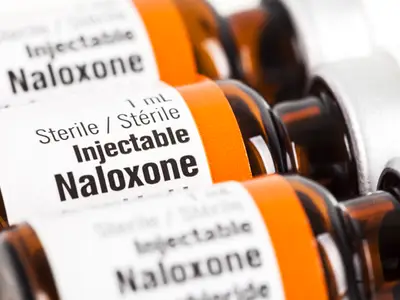Conducting research, evaluation, and training and technical assistance projects at the intersection of public health, public safety, and criminal justice to solve nationwide societal issues
Violence and harm are endemic to our society. Whether occurring at the institutional, community, family, and/or interpersonal levels, its impacts adversely affect the safety, health, and wellbeing of all. Comprehensive prevention and intervention approaches designed to reduce violence, ameliorate harm, and promote resilience are central to the work we do.
Our team focuses on solving some of our nation’s most intractable societal problems, including firearms violence; school safety; human trafficking; drug overdoses; illicit drug market disruptions; policing challenges; and violent crime. We conduct research, evaluation, and training and technical assistance projects at the intersection of public health, public safety, and criminal justice. Our projects, which function at the federal, state, and local levels, place emphasis on primary, secondary, and tertiary violence prevention and harm reduction strategies. We regularly engage people with lived experience to inform our work and involve stakeholders from multiple systems and sectors to advance change.
Violence Prevention
Violence prevention, intervention, and response is the heart of what we do. Our research, evaluation, and TTA approaches are victim-centered, trauma-informed, culturally and linguistically competent, and focused on the survivors and communities we aim to serve. Through participatory action research and inclusion of survivors and community voices, we identify effective strategies that are data-driven, practical, responsive to emergent needs, and designed to help individuals, families, and communities heal. To address violence and victimization, our experts work across disciplines, bringing together preeminent scholars and practitioners from diverse backgrounds, including psychology, public health, criminology, social work, and sociology.
Project Highlights
Community Violence Prevention and Intervention
RTI is leading research and evaluation efforts on Community Violence Intervention and Prevention Initiatives (CVIPI) and Community Violence Intervention (CVI) programs. CVIs take a multidisciplinary approach using evidence-informed strategies to prevent and disrupt cycles of violence and retaliation through community-centered initiatives. Research and evaluation of CVI programs supported through the Office of Justice Programs’ CVIPI should include community-based participatory and action research approaches where researchers, practitioners, and those most impacted by community violence work together to identify strategies, measure outcomes, and use data to adapt strategies as needed.
Evaluation of North Carolina Community Connectors
RTI is conducting a National Institute of Justice-funded independent evaluation of North Carolina’s Community Connector’s Program. The purpose of this project is to assess the impact and outcomes of the Community Violence Intervention (CVI) program in Greensboro, NC. The Community Connectors program emphasizes police and community resource partnerships including healthcare, education, employment, and reentry to address community needs and violence at multiple levels in one high-crime neighborhood and will expand into a second neighborhood and will add a new programming component focused on individuals at greatest risk for violence perpetration or victimization, including the use of credible messengers, intensive case management, trauma counseling, and connection to an array of needed services and resources.
California’s Project SUCCESS
RTI is leading an evaluation of California’s Project SUCCESS, a violence prevention initiative within the city of Modesto, California. Program activities include creating opportunities for youth to interact with positive mentors and to engage in prosocial activities; to connect prior-incarcerated individuals to services and support systems; and to strengthen community bonds and police-community relationships. RTI is supporting data collection efforts among the partners as part of the evaluation.

Project Safe Neighborhoods
RTI leads the National Institute of Justice-funded national evaluation of Project Safe Neighborhoods (PSN). PSN is part of the Department of Justice’s comprehensive violent crime reduction strategy. The four design elements of PSN include community engagement, prevention and intervention, focused and strategic enforcement, and accountability. The RTI-led evaluation includes a national assessment to examine broad effects of PSN on violent crime and ten case study sites to provide detailed analysis of local PSN efforts and outcomes.
Harm Reduction
Evaluation of the Harris Center Crisis Call Diversion (CCD) Program
Funded by the National Institute of Justice, RTI is conducting a mixed method process and outcome evaluation of the Harris Center for Mental Health and Intellectual Development Disabilities (Harris Center) CCD Program. Implemented in 2016, CCD was the first program in the nation to co-locate mental health counselors in a 911 emergency call center to divert non-imminent-risk calls with behavioral health concerns. The process evaluation will document the design, operations, activities, and implementation, including what is working well and areas for improvement, as well as assess 911 call triage fidelity.
North Carolina Center for Safer Schools: Training and Technical Assistance
RTI is working with the NC Department of Public Instruction to enhance the North Carolina Center for Safer Schools (NC-CFSS). Funded by the US Department of Justice Bureau of Justice Assistance, this project includes conducting a needs assessment of district superintendents and safety and security directors to identify what types of resources, trainings, technical assistance, and other supports that schools in the state need for violence prevention and emergency planning; collaborating with the NC--CFSS to identify priority areas for supporting school safety efforts throughout the state; and supporting training and technical assistance for behavioral threat assessment in schools. Learn more about our school-based research and evaluation here: School Safety & School Violence Prevention | RTI
Project Highlights
The impact of law enforcement on drug market disruptions
Throughout the overdose epidemic, RTI researchers have led the way in understanding harms associated with drug market disruptions. With funding from the Centers for Disease Control and Prevention researchers are now looking at the effect of law enforcement driven drug market disruptions in Indianapolis, Indiana and Detroit, Michigan. Recent findings from this study were published in the American Journal of Public Health and provide the most rigorous research to-date that show fatal and non-fatal overdoses increase in the surrounding area following routine opioid-related drug seizures among local police.
With funding from the National Science Foundation, RTI researchers are expanding our exploration of this iatrogenic effect (i.e., a problem caused by the actions intended to address another problem). Leveraging expertise in the National Incident-Based Reporting System (NIBRS), we are using this and other publicly available data sources to examine county-level variation in the types of substances that law enforcement seize and whether there is an association with overdose and violent crime in those areas.
There are also emerging policy changes to traditional criminal-legal efforts to disrupt local drug markets. With funding from Arnold Ventures, researchers from RTI are leading the way in examining the impact of Measure 110 in Oregon which decriminalized non-commercial drug possession and increased funding for substance use disorder treatment and harm reduction services. Preliminary findings suggest that resident-initiated calls for service did not increase in Portland and generally followed the same trends as major cities in neighboring states after the ballot measure.
Emerging Harm Reduction Strategies with Criminal-Legal Systems
RTI also supports harm reduction through training and technical assistance (TTA). State grantees funded by the Bureau of Justice Affair’s Comprehensive Opioid, Stimulant, and Substance Use Program (COSSUP) are focused on public safety and public health collaboration, and RTI has been critical in educating community stakeholders on the importance and evidence-base for harm reduction-based overdose preventions strategies.
Our TTA efforts included innovative methods of distributing naloxone, the opioid overdose antidote, through vending machines in county jail facilities. Our research demonstrates that these criminal-legal setting are a critical overdose prevention touchpoint. We have also fostered innovative collaborations between law enforcement and community partners focused on overdose prevention. For example, with harm reduction practitioners we have corrected misinformation around fentanyl exposure and developed educational resources on the risks of police drug enforcement. This has extended to efforts that recalibrate police presence away from non-fatal overdose follow-up and instead incorporate peer recovery supports.













